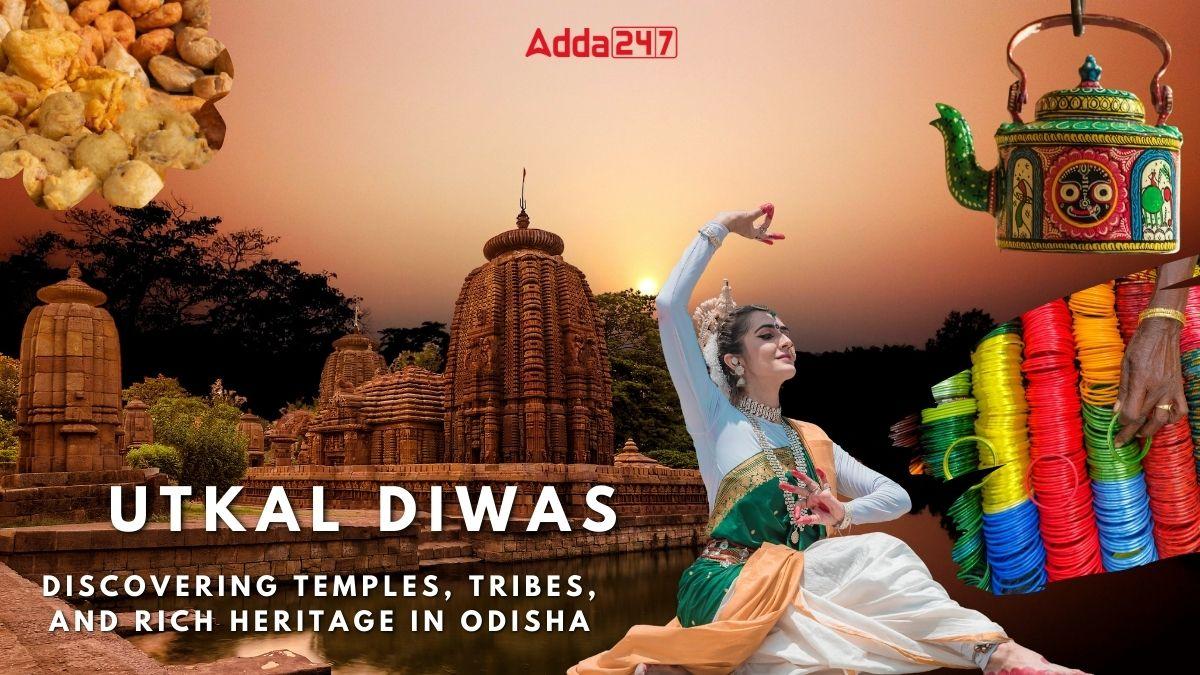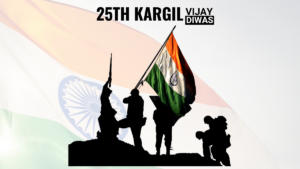Utkal Diwas, also known as Odisha Day or Utkala Dibasa, is a significant annual celebration held in the Indian state of Odisha. It is observed on 1st April every year to commemorate the formation of the state of Odisha on April 1, 1936.
This day holds immense cultural and historical importance for the people of Odisha, as it represents the culmination of a long-standing struggle for a separate state, distinct from the combined Bihar and Orissa provinces during the British colonial era.
Significance of Utkal Diwas
Utkal Diwas is more than just a celebration of Odisha’s statehood; it is a tribute to the rich heritage and vibrant culture that the state has nurtured over the centuries. The occasion serves as a platform to showcase the unique identity of Odisha and its people, encompassing their traditions, art forms, cuisine, and way of life.
During the festivities, the capital city of Bhubaneswar and other parts of the state are decked out in a festive atmosphere, with decorations, flags, banners, and flowers adorning homes, streets, and public spaces. The colors of the state flag – green, yellow, and red – are prominently displayed, symbolizing the pride and unity of the Odia community.
Historical Significance
The history of Utkal Diwas dates back to the early 20th century when the demand for a separate state for the Odia-speaking population gained momentum. After years of struggle and persistent efforts, the dream of a distinct state was finally realized on April 1, 1936, when Odisha was officially carved out from the combined Bihar and Orissa provinces.
This momentous event marked a significant milestone in the state’s journey, allowing the Odia people to preserve and promote their unique cultural identity, language, and traditions without the influence of other regions.
Celebrating Odisha’s Culinary Heritage
Odisha boasts a rich and diverse culinary heritage, which is celebrated with great enthusiasm during Utkal Diwas. The state’s traditional cuisine reflects its cultural diversity and historical influences, with dishes that are not only flavorful but also deeply rooted in the local traditions and agricultural practices.
Some of the popular and traditional dishes that are savored during the festivities include:
- Pakhala Bhata: A traditional dish made with fermented rice and water, served with accompaniments like fried or curried vegetables, fish, or pickles.
- Dahi Baigana: Fried eggplant served with a seasoned yogurt sauce, often garnished with chopped coriander leaves.
- Chhena Poda: A popular sweet dish made with cottage cheese (chhena), sugar, and cardamom, baked until it forms a caramelized crust.
- Macha Ghanta: A traditional fish curry prepared with various vegetables and spices, giving it a unique flavor.
- Dalma: A flavorful lentil dish cooked with assorted vegetables like pumpkin, brinjal (eggplant), potatoes, and plantains, often seasoned with mustard oil and tempered with spices like cumin and mustard seeds.
- Chhencheda: Sweet dumplings made with rice flour, coconut, and jaggery, shaped into small cakes or laddoos.
- Khira Gaintha: Dumplings made from rice flour, stuffed with sweetened coconut or jaggery, and cooked in sweetened milk.
- Badi Chura: Crumbled fried lentil dumplings (badi) mixed with chopped onions, green chilies, and mustard oil, served as a side dish or snack.
- Chingudi Jhola: A prawn curry cooked with onions, tomatoes, garlic, and spices, often served with steamed rice.
- Rasabali: A delightful sweet dish made with deep-fried paneer patties soaked in thickened, sweetened milk flavored with cardamom and saffron.
Vibrant Dance Forms
Odisha is renowned for its classical and folk dance forms, which are celebrated and showcased with great pride during Utkal Diwas. These dances not only entertain but also serve as a means of preserving and passing down the state’s cultural heritage to future generations.
Some of the prominent dances of Odisha include:
- Odissi: One of the eight classical dance forms of India, Odissi originated in the temples of Odisha. It is characterized by its graceful movements, intricate footwork, expressive gestures (mudras), and elaborate costumes. Odissi typically depicts stories from Hindu mythology, particularly those of Lord Krishna and Radha.
- Gotipua: Gotipua is a traditional dance form that originated in Odisha. Young boys, dressed as female characters, perform rhythmic movements and acrobatics to narrate mythological stories. It shares similarities with Odissi but is distinct in its own right.
- Chhau: Chhau is a martial dance form that is popular in Odisha, as well as in the neighboring states of West Bengal and Jharkhand. It incorporates elements of martial arts, acrobatics, and traditional dance movements. Chhau is often performed during religious festivals and depicts scenes from Hindu epics like the Ramayana and Mahabharata.
- Sambalpuri Folk Dance: Sambalpuri folk dances encompass a variety of traditional dance forms from the western region of Odisha, particularly the Sambalpur district. These dances are characterized by vibrant costumes, rhythmic footwork, and lively music. Examples include the Dalkhai dance, Rasarkeli, and Karma Naach.
- Ghumura Dance: Ghumura is a traditional dance form native to the Kalahandi district of Odisha. It involves dancers holding small drums called Ghumuras and performing synchronized movements to the beat of the drums. Ghumura dance is often performed during festivals and special occasions.
Cultural Significance
Utkal Diwas is more than just a celebration; it is a testament to the resilience and determination of the Odia people in preserving their unique identity and cultural heritage. The festivities serve as a reminder of the state’s rich history, while also providing a platform to showcase its vibrant traditions to the world.
Through various seminars, exhibitions, and cultural programs, the people of Odisha come together to celebrate their shared heritage, exchange ideas, and foster a sense of unity and pride in their cultural roots.
Utkal Diwas is a time for the people of Odisha to celebrate their unique identity, rich cultural heritage, and the state’s rich history. It is a celebration of the vibrant diversity that makes Odisha a truly remarkable place.
Important takeaways for all competitive exams
- Odisha Capital: Bhubaneswar;
- Odisha Chief Minister: Naveen Patnaik.



 Kargil Vijay Diwas 2024, Remembering Ind...
Kargil Vijay Diwas 2024, Remembering Ind...
 Important Days in July 2024, Check Natio...
Important Days in July 2024, Check Natio...
 National Brain Research Centre Celebrate...
National Brain Research Centre Celebrate...
